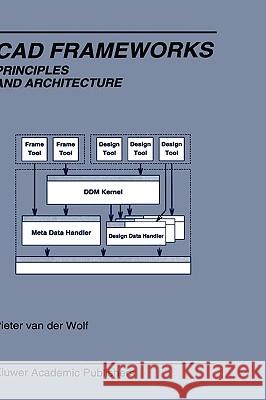CAD Frameworks: Principles and Architecture » książka
CAD Frameworks: Principles and Architecture
ISBN-13: 9780792395010 / Angielski / Twarda / 1994 / 225 str.
Since the early 1980s, CAD frameworks have received a great deal of attention, both in the research community and in the commercial arena. It is generally agreed that CAD framework technology promises much: advanced CAD frameworks can turn collections of individual tools into effective and user-friendly design environments. But how can this promise be fulfilled?
CAD Frameworks: Principles and Architecture describes the design and construction of CAD frameworks. It presents principles for building integrated design environments and shows how a CAD framework can be based on these principles. It derives the architecture of a CAD framework in a systematic way, using well-defined primitives for representation. This architecture defines how the many different framework sub-topics, ranging from concurrency control to design flow management, relate to each other and come together into an overall system.
The origin of this work is the research and development performed in the context of the Nelsis CAD Framework, which has been a working system for well over eight years, gaining functionality while evolving from one release to the next. The principles and concepts presented in this book have been field-tested in the Nelsis CAD Framework.
CAD Frameworks: Principles and Architecture is primarily intended for EDA professionals, both in industry and in academia, but is also valuable outside the domain of electronic design. Many of the principles and concepts presented are also applicable to other design-oriented application domains, such as mechanical design or computer-aided software engineering (CASE). It is thus a valuable reference for all those involved in computer-aided design.











